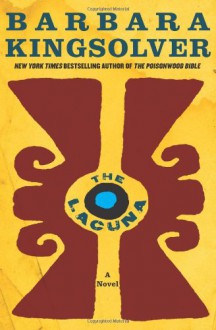
Fellow devotees of the Tournament of Books might recognize me from the comments. I've been following the Morning News' spoof on book tournaments for years, and have been a hardcore ToB Irregular since my boyfriend encouraged me to conquer my internet shyness and join the comments fray back in 2012. March is the one month where I interact on the internet, geeking out about books all day every weekday with some of the smartest readers I know. Things can get rough and tumble, but at the end of the day there's a civility that keeps me coming back. Book tournament satire + deathly serious yet hyperbolically lighthearted comments=perfect month.
In past years I read all, or nearly all, of the contestants. However, this year I was too busy, and poorly prepared. In my years as a bookseller I'd frequently read at least 5 of the books when the shortlist dropped; since my return to academia, with its wonderful-yet-onerous bottomless pile of nonfiction and articles, my fiction reading has dropped to a perilous level.
Perhaps if the books had been better I could have made time. But--and maybe I say this every year--but. This year was rough. All the Light We Cannot See is emblematic of my struggle with this year's lineup: a universally beloved book that just could not capture my heart or soul. Everything about this book was repellent. I even tried reading it on an airplane, essentially trapping myself in its sole company in the hopes of self-inducing stockholm syndrome, but nothing worked. Maybe it's a wrong time/wrong state of mind problem, but I don't think so. I just don't like this book.
The language is pretty, I will admit it. Really, it's too pretty: all shiny surfaces and no emotion or philosophy. An astute ToB irregular compared it a well-curated tumblr, which is so perfect: the experience of reading AtL is exactly like scanning through infinite pages of gorgeously-photographed gems and cunning sculptures, interspersed with overwrought poetry. Mind, my use of this comparison isn't meant to be derogatory: I am the proud owner of what I like to consider a rather well-curated tumblr, if I do say so myself! But tumblr is for fast scrolls when I'm procrastinating work; it's not something I necessarily come home to, and I've never looked forward to crawling into bed with it. It's not what I look for in a novel.
Another apt comparison comes from Mr. Underskies, who read a few chapters before giving up: this is a screenplay for a movie starring Audrey Tatou, A Very Long Engagement and Amelie met in the middle of the century and mashed together. Once he mentioned this I saw it on every page. I even noted a couple of absolutely-intentional-I'm-positive explicit references to Amelie. Again, the comparison is not meant to insult Amelie (though I'll definitely cast my scorn towards A Very Long Engagement; that movie was insultingly bad): it was my favorite movie when it came out! I owned a copy, and my parents never let me buy movies. But I was 14 then. I still love it, but I like to think my taste has evolved. Everything in AtL is so precious, every character--even the villain Nazi gem-hunter!--is a super special snowflake genius with a unique talent. It is adorable. It is vomitous.
My last problem is broader, and harder to articulate. I read a lot of nonfiction about World War One and Two. I read a lot of fiction and philosophy and theory written by people who lived through the war. I rarely enjoy it, and I don't expect to do so when I pick up Vasily Grossman or Hans Falada. I expect to be devastated, to feel my soul curdle, to obsessively circle in my head about evil and atrocity for weeks or months afterwards. I expect books set in or about WWII to make me feel, and I expect them to have some sort of philosophical purpose: if they don't, then I have trouble shaking the suspicion that they are exploiting the horror of this war for sales.
I have this suspicion about Anthony Doerr. The setting is superfluous. The characters' disabilities or Nazism are plot devices. He doesn't say anything worthwhile about the era. It's treacle and sentiment, which is cool in certain circumstances, but I have a serious moral issue with WWII being used as a plot device and a means to emotionally manipulate the reader. This is a problem I've head before, it is a problem I'll surely have again, but I'll never stop noting it. I don't go so far as Adorno to claim that art cannot/should not be made after the Holocaust, but I do have a threshold for "acceptable use," and this book crosses it.
The Tournament of Books reminds me to be a more generous reader, but this one failed me. Or I failed it. But, this time, I think it's the former.

 Log in with Facebook
Log in with Facebook 









